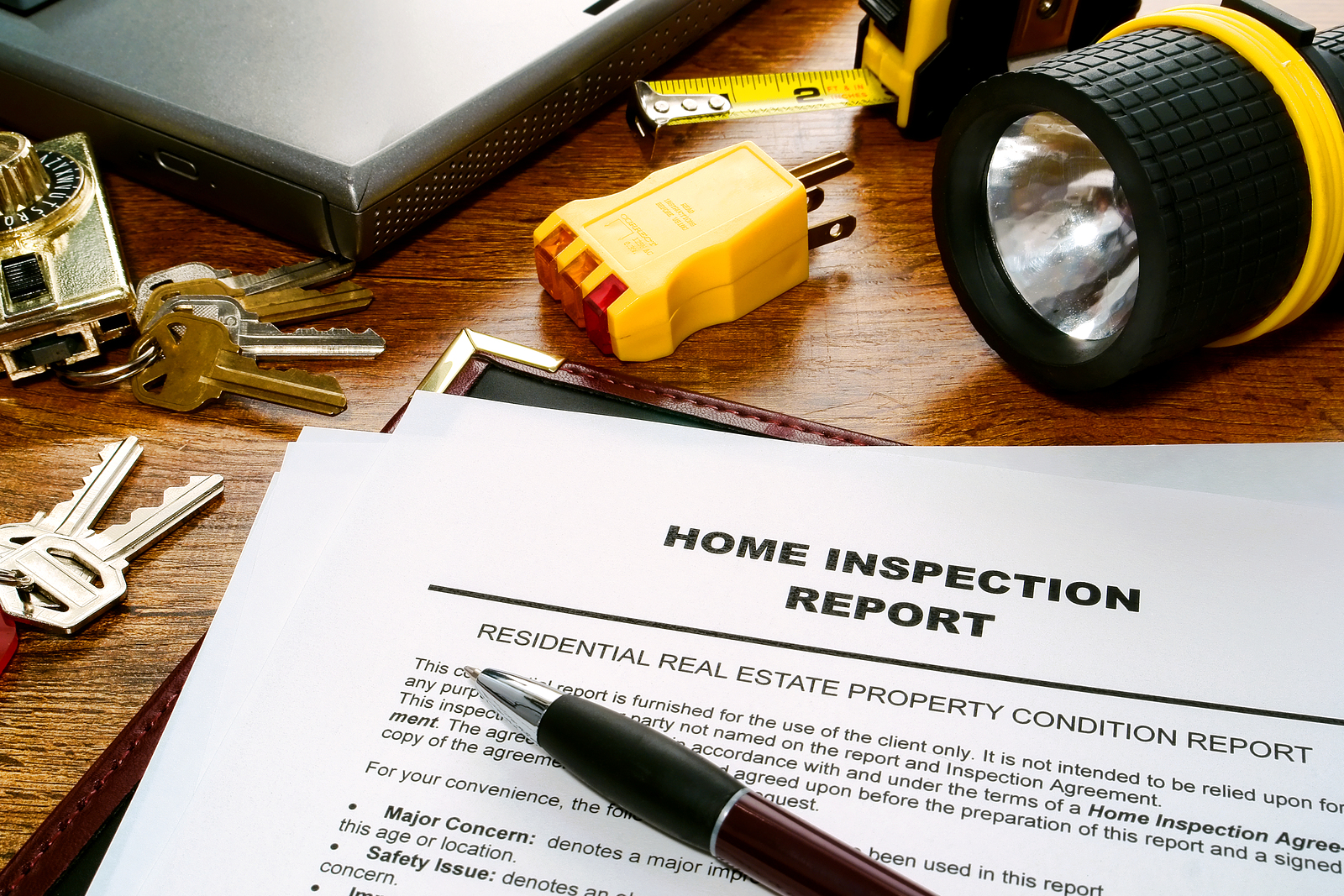You’ve found your dream home, and the inspection is done, but now comes a daunting task: negotiating.
How do you navigate this process without jeopardizing your purchase or paying more than necessary? Real estate experts have some strategic tips and tricks that might just be your saving grace.
These techniques, from understanding the severity of inspection findings to leveraging your rights, could significantly impact your negotiation outcome.
What if you could confidently address these issues, potentially saving thousands of dollars? Stay tuned to uncover these expert insights that might just tilt the balance in your favor.
Understanding the Home Inspection Process
To effectively navigate the home-buying journey, it’s crucial that you grasp the ins and outs of the home inspection process. Understanding this process can help you make informed decisions and avoid potential pitfalls down the road.

First, familiarize yourself with inspection timelines. Typically, once your offer is accepted, you’ve got about 10 days to complete the inspection. This is your chance to uncover any hidden issues with the property before fully committing. It’s a tight window, so you need to act fast. Next, knowing who’s involved can be a game-changer.
Home inspections aren’t DIY projects; they require skilled inspection professionals. These folks have the training and tools to spot problems you might miss. They’ll check everything, from the roof to the foundation, looking for signs of damage or wear and tear.
Importance of a Professional Home Inspection Building
On the topic of home inspections, let’s explore why hiring a professional for this task can save you a great deal of trouble down the line.
A professional home inspector is an expert with a keen eye for details that most of us might miss.
They delve deep into your prospective home, checking things you wouldn’t even think to look at. Consider the cost-effectiveness of the inspection. Yes, you’ll be paying for their services, but the value they provide in identifying potential problems can save you from costly repairs down the road. It’s a small price to pay now for peace of mind later. Inspection driven decisions are crucial.
The report from a professional inspector informs your negotiation strategy. This might involve asking for repairs, a price reduction, or even walking away if the issues are too significant. It’s about making informed decisions that protect your investment.
Identifying Major Vs. Minor Inspection Issues
Understanding the difference between major and minor inspection issues is crucial in your home-buying journey, as it can heavily influence your negotiation tactics and overall decision.
The process of inspection issue prioritization is key to focusing your attention and resources on what truly matters. Major issues are often structural, electrical, or plumbing issues that can significantly impact the safety and functionality of the home. They usually require immediate attention and can be costly to repair.

If these issues are too significant, you’ll need to negotiate with the seller or even reconsider the purchase. On the other hand, minor issues are often cosmetic, like peeling paint or outdated fixtures.
They’re less urgent and usually less expensive to fix. It’s important to remember that, as a homebuyer, it’s your responsibility to assess these issues. Consider the age of the home and be realistic about the wear and tear. Don’t let minor issues distract you from identifying major problems.
Remember, a home inspection’s purpose isn’t to create a perfect house, but to uncover serious issues that could affect your safety, comfort, and financial future.
Preparing Your Negotiation Strategy
As you prepare your negotiation strategy, understanding the inspection report is your first step. From there, you can identify major concerns that need immediate attention.
With these insights, you’re now ready to draft a well-informed proposal that balances your interests and the seller’s.
Understanding Inspection Reports
Before diving into negotiations, it’s crucial to thoroughly comprehend your home inspection report, as this forms the backbone of your negotiation strategy.
This involves inspection report decoding and understanding the implications of the report. The report is typically divided into sections based on the home’s different components.
Each section will contain details on the component’s condition, potential problems, and recommendations.
Here’s a simplified breakdown:
| Home Component | What it Means |
|---|---|
| Roof | Condition, age, potential leaks |
| Foundation | Cracks, structural issues |
| HVAC | Age, operational status |
| Plumbing | Leaks, pipe condition |
| Electrical | Wiring safety, code compliance |
Understanding these elements will help you identify what’s merely cosmetic and what’s a significant concern. Remember, every house has its quirks, so don’t be alarmed if your report lists several issues. What’s important is how you interpret these findings, prioritize them, and use this knowledge to negotiate effectively.
Identifying Major Concerns
Drafting Your Proposal Armed

Tips on Communicating With Sellers
Negotiating Repairs and Price Adjustments
Understanding Home Inspection Findings
Strategies for Repair Negotiations

Price Reduction Tactics
Role of Your Real Estate Agent in Negotiations
Your real estate agent plays an indispensable role in negotiating repairs or price adjustments after a home inspection, leveraging their expertise to ensure your interests are protected. They’ve got a deep understanding of the market and can provide guidance on how to navigate the negotiation process. Their negotiation skills are crucial in these discussions, as they’ll know how much leverage you have and what concessions you can reasonably ask for. Your agent’s expertise will be invaluable in deciphering the inspection report, helping you determine which issues are minor and which are potential deal-breakers. They’ll also advise you on how to present your requests to the seller in a way that’s both fair and persuasive.
Case Studies of Successful Home: Inspection Negotiations
Let’s examine a few case studies of successful home inspection negotiations to better understand how these negotiations play out in real-life situations. Here are four interesting cases:
1. Inspection timeline implications: In one instance, a buyer discovered a major roofing issue during the inspection. However, the seller was on a tight timeline to move out. To negotiate, the buyer agreed to a faster closing date in exchange for a reduced price that covered the roof repair costs.
2. Post-negotiation reflections: In another case, a home inspection revealed a problem with the home’s electrical system. The seller initially resisted, but after the negotiation, they admitted that addressing the issue upfront led to a smoother, more successful sale.
3. Unexpected benefits: In a third case, an inspection turned up termites. The buyer used this to negotiate a lower price, and the seller agreed. This resulted in the buyer saving thousands, making the inspection fee well worth it.
Moving Forward After Inspection Negotiations
Once the dust settles from inspection negotiations, it’s crucial to effectively navigate the next steps of your home-buying journey. This process, filled with inspection aftermath emotions and post-negotiation reflections, can be quite overwhelming.
Take a moment to reflect on the negotiation outcome. Whether it was favorable or not, it’s a learning experience that can sharpen your real estate acumen. Your emotions at this stage are valid but should not cloud your judgment moving forward.
A useful way to process your experience and strategize for the future is to map out the negotiation process and its results. This can be done using a simple 2-column, 5-row table:
| Steps of the Negotiation Process | Reflections |
|---|---|
| Initial Home Inspection | |
| Issues Identification | |
| Negotiation Strategies | |
| Agreement / Disagreement | |
| Post-negotiation Actions |
Fill in this table with your experiences and thoughts at each stage. It helps you identify what worked, what didn’t, and where there’s room for improvement. Keep this table handy. It’s a valuable tool for future real estate dealings. Embrace the learning curve; it’s a part of the journey.
Frequently Asked Questions
What Are Some Common Misconceptions About the Home Inspection Process?
Like all issues, you might think that inspection misunderstandings are deal breakers. Truth is, they’re not. Another common perception is that sellers fix everything. In reality, negotiations often occur after the inspection.
How Is a Home Inspection Different From a Home Appraisal?
A home inspection focuses on the property’s condition, factoring in inspection costs, while an appraisal determines its market value and offers appraisal benefits like loan approval. They’re different, but both are crucial in the home purchase process.
Can a Home Fail an Inspection?
Yes, a home can fail an inspection if major issues are uncovered. Don’t panic; this just means corrective measures are needed. Understanding the inspection consequences allows you to negotiate repairs or price adjustments.
What if the Seller Disagrees With the Inspection Results?
If the seller disputes your inspection results, it’s crucial to understand their perspective. Engage in open dialogue, present your findings clearly, and negotiate. Compromise is key in these inspection disputes.
Should I Still Buy a House With Major Inspection Issues?
You should consider ‘Inspection Red Flags’ seriously. If you’re comfortable overcoming inspection hurdles and investing in repairs, proceed. But if the issues are too costly or risky, it might be wise to reconsider your choice.
Conclusion
Negotiating a post-home inspection can be tricky, but you’ve got this. Remember, understanding the inspection process, identifying major issues, and crafting a solid negotiation strategy are key.
Keep communication lines open with sellers, and negotiate repairs or price adjustments wisely. Leverage your real estate agent’s expertise and learn from others’ successful negotiations.
Don’t hesitate to move forward confidently, knowing you’ve done your due diligence to secure the best deal for your dream home.
